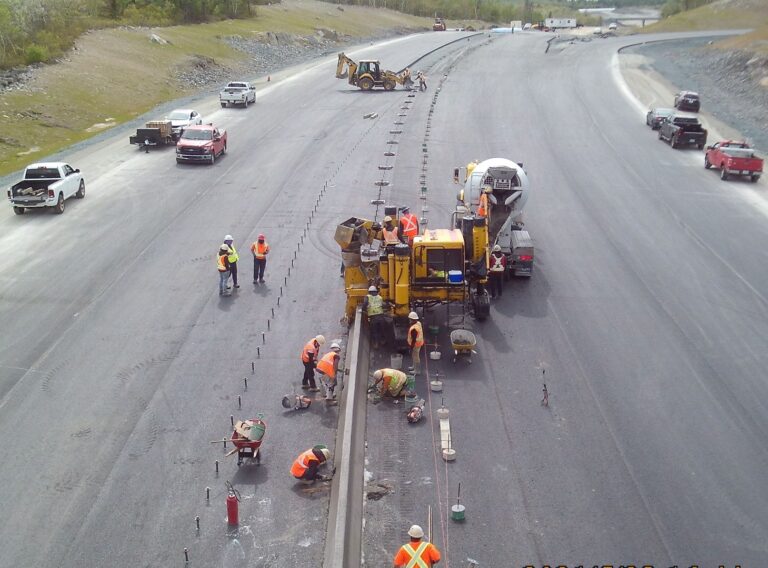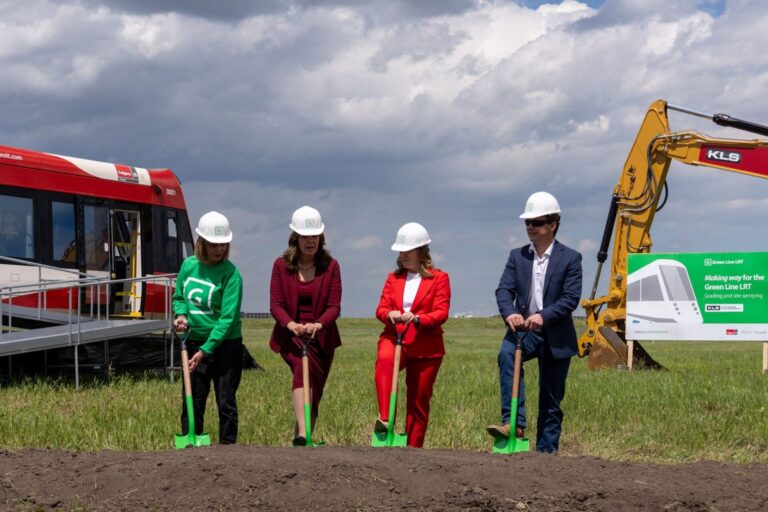Six premiers welcomed the call for increased planning and execution of sustained investment in national trade infrastructure at a breakfast meeting held July 12 with a group of leading business organizations championing a Canada Trade Infrastructure Plan (CTIP).
Manitoba Premier Heather Stefanson, chair of this year’s Council of the Federation meeting, joined Ontario Premier Doug Ford, Alberta Premier Danielle Smith, B.C. Premier David Eby, Yukon Premier Ranj Pillai and Nunavut Premier P.J. Akeeagok at a breakfast hosted by seven leading Canadian business organizations that have proposed the Canada Trade Infrastructure Plan (CTIP).
The organizations include: Canada West Foundation, Canadian Chamber of Commerce, Canadian Construction Association, Canadian Manufacturers & Exporters, Civil Infrastructure Council Corp. and Western Canada Roadbuilders & Heavy Construction Association.
The group has asked the Council of the Federation to support and lead a collaborative campaign to persuade the federal government in its 2024-25 budget to include funding for advancing a Canada Trade Infrastructure Plan with the 2024-25 budget. The concept includes governments working with the private sector and national stakeholder associations to set out the building blocks of a CTIP.
Discussions at the breakfast focused on the need for investment now on trade infrastructure – rail, highway, air, port and marine assets – to ensure that Canada is competitive in global trade markets. Premier Stefanson underlined that it is apparent that Canada has work to do on its supply-chain reliability and capacity, noting the importance of the revenues returned from trade.
“According to World Bank Data, two-thirds of Canada’s income is derived from trade; we’re three times more dependent on trade than the United States,” explained Canadian Construction Association President Mary Van Buren. “We need the revenues that trade returns to government to fund the vital social services and the infrastructure we need, such as for hospitals, and schools.”
Canadian Chamber of Commerce President and CEO Perrin Beatty said what is proposed is a plan that would grow the economy across Canada, in all jurisdictions, ensuring all trade corridors to domestic, continental and global destinations have the fluidity and capacity to move Canada’s goods and services, as global markets expand.
“Unfortunately, our trade infrastructure today isn’t up to the job,” Beatty stressed. A 2019 report by the World Economic Forum found Canada’s rank fell to 32nd – down from a top 10 in 2008 – in a global survey of the quality of national trade infrastructure, putting Canada behind Azerbaijan in 2019.
Canada West Foundation President Gary Mar told the premiers Canada, in a European Court of Auditors survey, was found to be the “only major trading economy that doesn’t have a long-term infrastructure investment plan. We know what our competitors are doing. The country needs the premiers to call on the federal government to join you in advancing a national infrastructure plan in 2024.”
CTIP, based on recommendations within a May 2022 Canada West Foundation report From Shovel Ready to Shovel Worthy, is about developing a strategy for long-term funding that prioritizes and coordinates investment in nation-building trade infrastructure. Projects would be prioritized based upon their potential for return on investment to Canada’s GDP.
“We are championing to build a better Canada from that long-term infrastructure planning,” Van Buren said.
A recent Ipsos survey found 93 per cent of Canadians strongly (55 per cent) or somewhat (38 per cent) agree that given how important trade is to Canada, we need to prioritize making sure that our trade infrastructure can effectively move people to jobs and products to market.
Featured image: (Government of Ontario)











